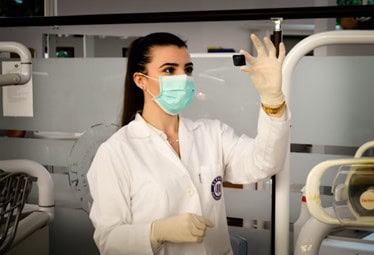How to Maximize Your Medical School Experience to Prepare for Residency
Embarking on the journey through medical school is both exciting and demanding. As you navigate this rigorous path, one of your foremost goals should be to prepare effectively for residencies. Training for such positions is a pivotal phase in your medical career, so optimizing your educational experience can set you up for success. Here are key strategies to make the most of your time in medical school and ensure you’re well-prepared for open residency positions.
Excel Academically
Strong academic performance in med school is crucial for a successful residency application. Strive for excellence in your coursework, clinical rotations, and exams. Develop effective study habits, seek help when needed, and engage actively in class discussions. Keep in mind that your grades, particularly in core subjects like internal medicine, surgery, pediatrics, and psychiatry, will be closely scrutinized by residency programs.
Pursue Research Opportunities
Engaging in research can significantly bolster your residency application. Seek out research projects related to your field of interest. Not only does research experience demonstrate your commitment to advancing medical knowledge, but it also helps you develop critical thinking and problem-solving skills. Aim to publish your findings in reputable journals or present at conferences. This experience can make your application stand out and provide valuable insights into your chosen specialty.
Build Strong Relationships with Mentors
Mentorship is a vital component of medical education. Establish relationships with faculty members, attendings, and senior residents who can provide guidance and support. Mentors can offer valuable advice on residency applications, provide letters of recommendation, and help you navigate the complexities of medical training. Regularly seek their feedback and discuss your career goals and interests with them.
Gain Diverse Clinical Experience
Exposure to a wide range of clinical settings and specialties is essential. During your rotations, actively seek opportunities to work in different departments and with various patient populations. This diverse experience will not only help you refine your clinical skills but also allow you to identify which specialty aligns best with your interests and strengths. It also demonstrates to residency programs that you are well-rounded and adaptable.
Develop Strong Clinical Skills
Residency programs look for candidates with excellent clinical skills and a solid understanding of patient care. Focus on developing these skills throughout your medical school years. Pay attention during clinical rotations, practice procedures diligently, and seek feedback from your supervisors. Proficiency in history taking, physical examination, and patient management will enhance your readiness for residency and make you a more competitive candidate.
Engage in Extracurricular Activities
Participate in extracurricular activities that align with your interests and career goals. Involvement in student organizations, medical societies, or community service projects can provide leadership experience and demonstrate your commitment to the medical field. Such activities also offer opportunities for networking and personal growth, which can be beneficial for your future residency.
Prepare for the USMLE Exams
The United States Medical Licensing Examination (USMLE) is a critical component of the residency application process. Start preparing for these exams early and develop a study plan that accommodates your coursework and clinical responsibilities. Utilize study resources, take practice exams, and seek advice from peers who have successfully navigated the USMLE. Strong performance on these exams can significantly impact your residency prospects.
Network with Peers and Professionals
Building a network of professional connections can be invaluable. Attend medical conferences, seminars, and networking events to meet peers, faculty, and practicing physicians. Engaging with the medical community can provide insights into various specialties, residency programs, and potential career paths. Networking also offers opportunities for collaborations and learning from others’ experiences.
Explore Specialty Interests Early
Take advantage of electives and shadowing opportunities to explore different specialties. Early exposure to various fields can help you make informed decisions about your career path. If you have a clear specialty interest, seek out mentors and experiences related to that field. Demonstrating a focused interest in a specialty can strengthen your residency application and align with program expectations.
Reflect and Set Goals
Regularly reflect on your experiences and progress throughout medical school. Set clear, achievable goals for your academic performance, clinical skills, and extracurricular involvement. Periodically assess your progress and adjust your goals as needed. Self-reflection and goal-setting will help you stay on track and ensure you’re making the most of your medical school experience.
Conclusion
Maximizing your medical school experience requires a strategic approach to academics, clinical practice, research, and personal development. By excelling academically, pursuing research opportunities, building relationships with mentors, gaining diverse clinical experience, and preparing for the USMLE exams, you can position yourself for a successful residency and a fulfilling medical career. Embrace every opportunity, seek feedback, and stay focused on your goals. With dedication and effort, you’ll be well-prepared to navigate the challenges of residency and thrive in your medical profession.


